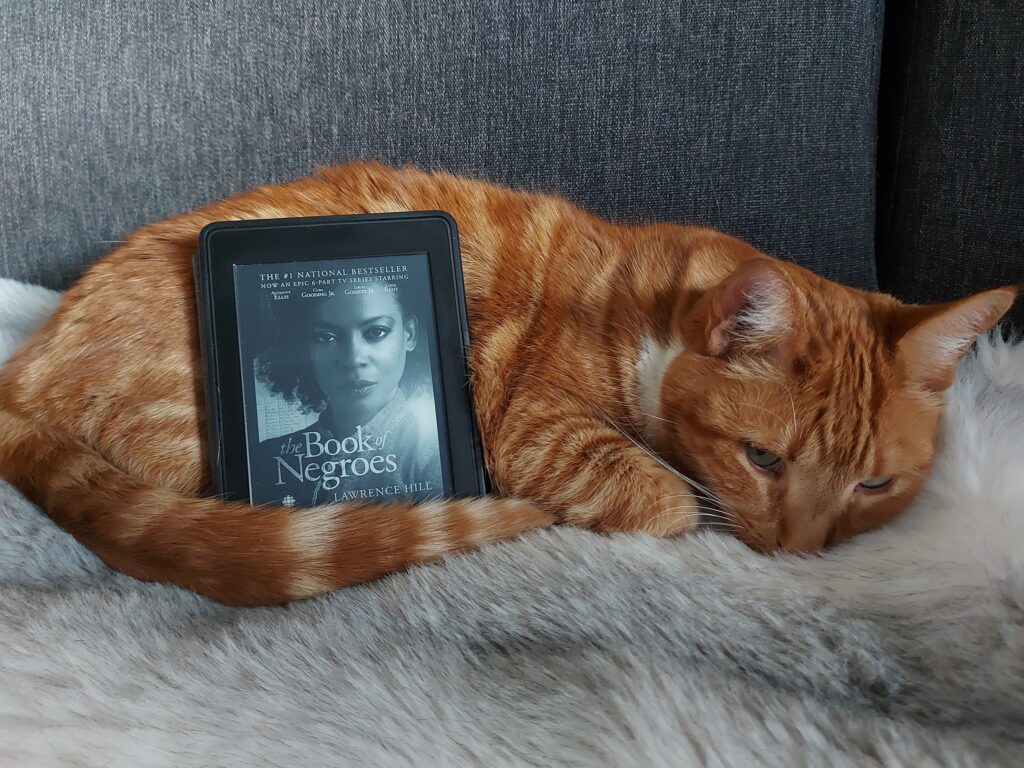The Book of Negroes by Lawrence Hill

The Book of Negroes is a novel about an African woman who was sold into slavery, and who spends the rest of her life fighting for a tenuous freedom that takes her full circle back to her country of birth. It is a bleak story, of course, but not as violent in its depiction of the slave trade as it could have been, so I found it to be a more palatable read than some other books about slavery that I have read. What I found most interesting about The Book of Negroes, though, was the details about the African slave trade that do not get discussed much. If anything, I recommend reading The Book of Negroes for the history as you can tell Lawrence Hill put much effort into researching this novel.
The Book of Negroes opens in London, England in 1802. Aminata Diallo, a former African slave, is assisting the Abolitionists in their crusade to end slavery in the English colonies and recounts the story of her life beginning with her abduction when she is a child living in West Africa and being sent across the Atlantic Ocean to live as a slave in South Carolina.
Aminata’s indomitable and pragmatic spirit is immediately evident as she makes herself useful to her white slavers by learning their language and using the midwifery skills that her mother taught her to help birth other slaves’ babies, but she also stands up to them as well. Aminata has one goal in mind, and that is to return to Africa, but she knows that she cannot do it without learning about the white man’s world and how to navigate it. She learns how to speak English like a white person, and how to read and write and do sums. By elevating herself above the typical slave, she attracts the attention of white protectors who assist her with attaining freedom, but Aminata is not a naïve woman who thinks these protectors will ever treat her as an equal.
As much as I admire a strong, fully formed character like Aminata, who keeps on surviving despite the terrible losses that she suffers, I cannot help but feel that she is merely a contrivance to move the plot forward to different points in the history of the African slave trade. She seems extraordinarily lucky to keep on encountering people who want to help her and for escaping the worst of the horror and abuse that slaves live with. Through Aminata’s movements, the reader learns about how after the American Revolutionary War, the British evacuated Loyalist African slaves from New York and took them to Nova Scotia with the (false) promise of receiving their own land (the novel is named for the ledger that the British kept that listed all the slaves they evacuated), and then how the Sierra Leone Company resettled freed Black slaves in Africa with more (false) promises of receiving their own land. It is all very fascinating, though, so I can excuse Hill for creating a protagonist whose life does not seem to be entirely realistic.
But perhaps the most important thing that The Book of Negroes can teach us, what Aminata can see but what white people seem to be blind to, is how slavery is not merely a black and white issue. Slavery is a very human issue perpetrated by everyone against everyone regardless of race. African people were involved in their own enslavement. They would raid each other’s villages and take slaves, then march those slaves to the coast to sell to white slavers. White people have enslaved people of colour, but white people have also enslaved people of their own race through poverty and indentured servitude. Slavery continues to this day, despite us knowing how wrong it is, despite stories like The Book of Negroes showing us how wrong it is. The Book of Negroes is a good novel that I think you should read, but it left me feeling rather sad, for Aminata, and for humanity because we will never learn how to treat each other better.